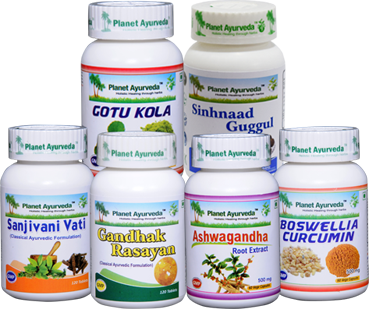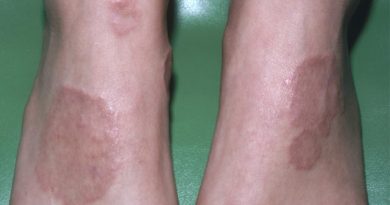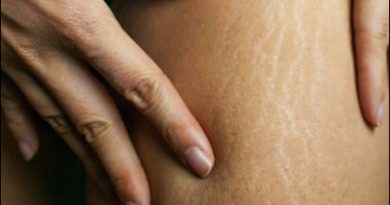Treat Scleroderma with the Organic Herbal Supplements
Abstract
Scleroderma is a rare tissue disorder with complex and unknown pathogenesis but the major hallmarks of the disease are autoimmunity, fibrosis, and vascular insult. The most crucial factor in the management of patients depends on the early detection of the disease and the involvement of internal organs. Though there is no definitive or universally accepted treatment of the disease, proper management through holistic and tailored methods can optimize the quality of life.
Introduction
The term ‘Scleroderma’ is made up of two Greek terms i.e. “Sclero” means hard while “dermis” means skin. Scleroderma is a chronic autoimmune connective tissue disorder that is predominantly characterized by the hardening and thickening of tissues and skin. This condition usually initiates when our body starts producing abnormal quantities of collagen protein which further leads to the thickening of blood vessels and tissues.

What are the causes of Scleroderma?
Scleroderma is a multisystemic disorder, its exact pathogenesis and etiology are not completely understood but some factors contribute to Scleroderma.
- Genetic factors: Scleroderma tends to run in families and there are pieces of evidence that autoimmune diseases occur in families of individuals affected with this disease.
- Environmental factors: Thereare certain external as well as internal factors that may contribute to triggering the disorder. It has been shown in studies that exposure to silica dust, organic solvents, polyvinyl chloride, xylene, trichloroethylene, etc. is linked to the development of Scleroderma.
- Certain pathogens such as Epstein-Barr virus (EBV) and Cytomegalovirus (CMV) also contribute to the triggering factors. According to pathological reports, some drugs like Bleomycin and Cocaine are associated with the illness. (2)
What are the symptoms of Scleroderma?
Symptoms may vary with the type of tissue and body part affected, but some of the common symptoms are given below
- Thickening of the affected patch of skin
- Puffiness or swelling in toes and fingers
- Weakness in muscles
- Diarrhea
- Bloating and heartburn
- Sudden weight-loss
- Small red spots on face and chest
- Shortness of breath
- Sores in toe/fingertips
- Reduced or limited mobility of wrist or elbows
- Raynaud’s Phenomenon
The appearance and severity of specific symptoms depend on the type of Scleroderma and varies from person to person.
What are the types of Scleroderma?
Scleroderma is considered a rare disease and its prevalence varies with gender, geographical area, and ethnicity. Its severity varies with the intensity of the symptoms but women are at higher risk as compared to males.
There are two types of scleroderma
- Localized Scleroderma– This type mainly affects the skin and, in some cases, may slightly have an impact on bones and muscles. Localized scleroderma mostly affects women usually with an incidence of around 3 cases per 100,000 individuals annually. According to recent scientific studies, Localized Scleroderma can have different clinical forms but there are two main groups of this type i.e. Morphea and Linear Scleroderma. (1) (2)
- Systemic Scleroderma- In this type, the affected person’s internal organs are involved like lungs, kidneys, digestive tracts, and heart. Systemic scleroderma is rare in elders or children but can occur at any age and individuals aged between 30-50 years are more prevalent. Systemic Scleroderma can be further classified into two types i.e. Limited Cutaneous Systemic Sclerosis and Diffuse Cutaneous Systemic Sclerosis. (1) (2)
What might be the complications that may occur without proper treatment?
Complications in Scleroderma range from mild to severe which can affect other body parts. Let’s discuss them below:
- When Scleroderma affects your lungs, it may create an imbalance in the functioning of the lungs which ultimately affects breathing and develops high blood pressure in arteries.
- Your protein levels in urine get elevated when scleroderma starts developing in kidneys and in worst situations it can also result in rapid kidney failure.
- Scarring in tissues of the cardiovascular system increases the risk of congestive heart failure and inflammation of the membranous sac.
- The occurrence of digestive problems like heartburn, bloating, constipation, diarrhea, etc.
- Erectile dysfunction, decreased sexual lubrication, etc. are some of the sexual problems faced by patients.
How Scleroderma can be Evaluated?
Individuals suspected of Scleroderma have to undergo certain clinical assessments to confirm the diagnosis and analyze further complications. Some of the screening tests are given below-
- Hand X-ray
- HRCT of the chest
- Nailfold capillaroscopy
- Esophageal manometry
- Spirometry
- Diffusing capacity of the lung for carbon monoxide (DLCO)
- Urinalysis
- Complete blood count
- Electrocardiogram
- Liver and renal functions
- Gastrointestinal endoscopy
Ayurvedic aspect of scleroderma
According to Ayurvedic principles, Scleroderma or Uttana Vatarakta is caused due to aggravated Vata dosha as an imbalance of Vata results in abnormal functions of the immune system and brain. This disorder mainly interrupts Rakta Dhatu, Tvak, and Rasa Dhatu. Since this is a chronic condition the treatment mainly revolves around the management of symptoms of the disease. Ayurveda holds up the ability to eliminate the root cause of every ailment naturally with few lifestyle changes and Indian traditional herbs.
Healing solutions by Planet Ayurveda
Planet Ayurveda is providing the best herbal combination, the “Sclero Care pack” for the treatment of Scleroderma. Herbal remedies included in this pack have been prepared by using the best quality herbal extracts and under the strict supervision of experts.
Product Description
1. Ashwagandha Capsules
Ashwagandha Capsules have been prepared from the best quality and extracts of Ashwagandha (Withania Somnifera). This amazing Indian traditional herb helps boost the immune system naturally, enhancing mental capabilities and maintaining cardiovascular health. Moreover, it is beneficial in pacifying Vata and Pitta dosha and benefits overall health.
Dosage– 1 capsule daily with warm water
2. Boswellia Curcumin
This is another amazing product containing a combination of Shallaki (Boswellia serrata) and Curcumin (Curcuma longa). Both herbs possess anti-inflammatory properties and are great anti-oxidants. Boswellia Curcumin capsules maintain a blood supply, supports the immune system, and keeps our cardiovascular system healthy.
Dosage– 1 capsule twice a day with warm water
3. Gotukola Capsules
Gotukola Capsules contains standardized extracts of Centella asiatica which is beneficial in balancing psychic energies i.e. Rajas, tamas, and Satva present in our body, pacifies Pitta dosha, maintains blood circulation, and regenerates brain cells.
Dosage– 1 capsule twice a day with warm water
4. Sanjivani Vati
Sanjivani Vati is a combination of powerful Ayurvedic herbs like
- Amalaki (Emblica officinalis)
- Shunti (Zingiber officinalis)
- Pippali (Piper longum)
- Guduchi(Tinospora Cordifolia), etc.
All these herbs in combination help in managing autoimmune disorders improve liver functions and reduce the accumulation of toxins in the body.
Dosage– 1 tablet twice a day with warm water
5. Gandhak Rasayan
Gandhak Rasayan has been prepared from pure Gandhak (purified sulphur) which possesses antimicrobial, antiviral, anti-inflammatory, etc. properties. This wonderful combination balances Tridosha, reduces inflammation, provides healthy skin, and boosts the immune system.
Dosage– 1 tablet twice a day with warm water
6. Sinhnaad Guggul
It is a classical Herbal formulation. It is prepared from the herbs like Triphala (Three myrobalans), shuddha gandhak (Purified sulphur), shuddha guggul (Purified Commiphora mukul) and Eranda taila (oil of Ricinus communis).
Dosage– 2 tablets twice daily with warm water
Conclusion
Scleroderma is a rare disease and no treatment can permanently eliminate the disease but the aim is to get relieved and slow down the progression. Using immunosuppressants is always disappointing so it’s better to keep a hold on a more holistic and natural mode for treatment. Most importantly patients’ education about the disease along with emotional support should be considered as a part of healing.
References
- https://www.ncbi.nlm.nih.gov/books/NBK537335/
- https://www.ncbi.nlm.nih.gov/books/NBK430875/






